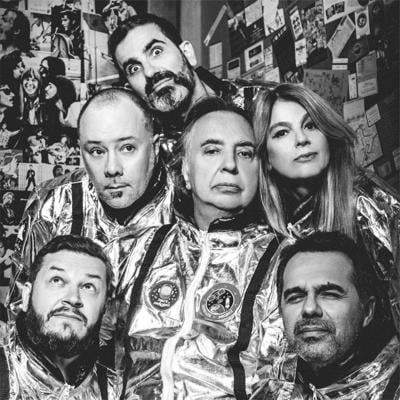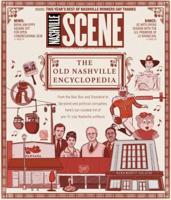
Dear Os Mutantes: Thanks for everything. More specifically, thanks for World Psychedelic Classics Vol. 1: Everything Is Possible. Compiled by David Byrne and released via his label Luaka Bop in 1999, this best-of record cracked my consciousness wide-open and let a world of music come flooding in. The simple idea that I could drop a pin on the map and maybe find my kind of weirdos — my kind of mutants, you might say — was mind-blowing. The fact that there was an entire world of psychedelia to explore ran counter to the myopic view seen through the lens of Jan Wenner’s boomer-nostalgia industrial complex.
I’m a parochial kid from an Anglophilic part of Boston, where I grew up without much appreciation for other cultures beyond, say, taking a Spanish class in high school. Hollywood, London and New York dictated my tastes, including a distaste for San Francisco and hippies. A misunderstanding of how art and music exist beyond The Important Cities clouded my judgment during my early years as a listener. Stumbling onto Everything Is Possible opened up the spigot of global pop for me with brute force — think Stanley Spadowski screaming “You get to drink from the firehose!”
With the benefit of 24 years of hindsight, I can see how the record shaped friendships, listening habits and my sense of adventure. And these days, knowing that there is an entire world of creative people making music helps me sleep at night. It keeps me calm when American entertainment — Big Entertainment in general — feels creatively bankrupt and culturally stalled. The place where global musics intersect is my happy place, and I have Os Mutantes, supremely creative psych rockers from Brazil who sing mostly in Portuguese, to thank for pointing me there.
I remember the electric jolt that shot through my brain the first time I heard the opening track “Ando Meio Desligado” go from smooth and funky to TOTAL FREAKOUT. Deep in the stanky depths of my college radio station, reviewing records for airplay was a tedious and often thankless task that, for some nigh-unfathomable reason, I absolutely fucking loved. Record label budgets were huge, and promo CDs were everywhere in 1999; nü metal and faux grunge had taken over rock radio, indie rock was getting more corporate by the minute, and hip-hop was trapped in a shiny suit. Possibilities seemed rather limited, frankly, until Everything Is Possible found its way into my stack.
Here was a band shifting gears through so many sounds — vaudevillian pop, baroque classical, bossa nova and full-fuzz garage stompin’. And yet for all of the musical ideas being thrown around, with all of the weirdness that they’re soaking in and breathing out, the songs are so catchy that they speed-vault over any language barrier and land squarely in your long-term memory. Everything Is Possible is a 14-song curriculum, teaching how art can be beautiful and creative and political at the same time — it can contain multitudes. You can listen to “Cantor de Mambo,” a groovy number with wild guitar tones and over-the-top vocalizing just for fun. Translate the lyrics and you learn it’s about a nightclub singer who emigrates to Hollywood for the sake of his career and becomes king of the mambo singers, though no treasure can match the girlfriend he left behind.
When I first heard the album, I knew next to nothing about the Tropicália movement of Brazilian artists and musicians resisting that country’s dictatorship in the ’60s and ’70s, though I knew that pissing off dictators is and always will be cool as hell. The fact that Os Mutantes were so far away from the punk orthodoxy of my Maximumrocknroll youth but so close to the punk ethos I envisioned was a gift that has kept on giving.
Mostly though, dear Os Mutantes, I would like to thank you for the past couple of weeks. I spent a lot of time jamming your catalog with my kid while prepping this piece, ahead of your show at The Blue Room. He never lets me pick the music — a weird karmic roundhouse to my head, if we’re being honest — but this stretch has been different. Maybe it was the undeniable joyful bombast of “A Minha Menina” or the cinematic scope of “El Justecerio,” but one afternoon, he gave it his highest compliment: “This is Godzilla music!”
It has been a fortnight of “Bat Macumba” dance parties in the kitchen and dramatic interpretations of “Fuga No. 11” in the car. The look on his face as he puzzles out the coda to “Dia 36” ? Priceless. And I haven’t had the Paw Patrol theme forced on me in ages — a minor miracle. I hope that, years from now, when my son is at a crossroads, looking for direction, that I’ll be able to drop this gem of an album on him again — to remind him that everything is possible.





